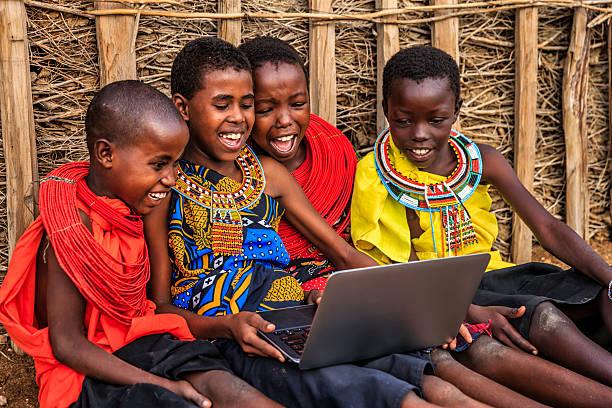Why cut Africa from e-learning?

When analysing the challenges of e-learning, there is a tendency to focus on the issue of access: difficulty in accessing financial resources to acquire equipment; Difficulties of geographical access, since some regions are too isolated and under-equipped to be properly connected to the Internet or even the electricity grid, which are necessary for the establishment of e-learning systems. But these are not the only problems to consider!
African culture in danger?
There are also sociocultural challenges. Indeed, critics argue that the use of e-learning in African higher education could erode African culture and identity. They fear that e-learning platforms will only focus on Western culture. These critics fear that the use of e-learning will somehow destabilize existing patterns and behaviours in African higher education.
Yet new technologies offer a chance to intensify communication in the learning process and expand educational offerings across borders. Online learning can also enable academics to build new networks beyond their borders. While western knowledge can spread in Africa, the opposite is also true: continent-specific knowledge can spread much further through e-learning. Second, Africa should be encouraged to invest in e-learning, as in Latin America and India.
An important social innovation
Most African countries have progressive policies related to e-learning and have adopted it in theory. However, in practice, much remains to be done, especially by those who must share this information: educators. At the same time, mechanisms must be put in place to ensure that it is used without being perceived as undermining the efforts, knowledge and cultures of the African peoples. Those who criticize e-learning for its threat to African cultural identities clearly see globalization – and the diffusion of technology and resulting innovation – as a danger that aggravates disparities between the Western world and African countries.
However, e-learning is both a technological and social innovation that can solve problems in a particular social context. For example, my colleagues have used e-learning to complement their teaching as part of a master’s program in health information management in Kenya, Tanzania, and South Africa. This saved money as students and staff did not have to travel. It was also an opportunity for invaluable intercultural learning. African cultural identities will not be eroded by online learning. On the contrary, this kind of intercultural experience helps to strengthen the continent’s own identity. At the same time, it is a way to better understand and accommodate diversity.
To appease fears
Critics also say that e-learning is a way of imposing technology on African people. This idea stems from the imbalance of power and economic disparities between the West and Africa. Unfortunately, there is a lack of understanding of the problems that these technologies are likely to solve. For example, large parts of Africa are distant. People in these regions want to continue learning, but they struggle to do so because they are far from cities or large centres. Online learning is a way to respond appropriately to this demand, quickly and cheaply.
Part of the problem in Africa is that people do not distinguish between Westernization and modernity. Westernization is the cultural emulation of the West, which leads to the blind and systematic adoption of Western ideologies, technologies and content. Modernization is the acceptance of changes compatible with science, technology and their functional requirements in people’s lives. Resistance to modernity, in this case e-learning, could actually hinder the socio-economic development of Africa.
E-learning is an innovation that has many benefits and can address some of the educational challenges of higher education in Africa. Criticism must be heard and analysed so that fears can be removed. Those of us who work in the field of e-learning, as well as those who provide the educational platforms, will have to help people to distinguish between the origin of technology – often nations or Western organizations – and the benefits it brings.
Finally, it will also be important to prepare African educators for this technological breakthrough. They need to know how to use it, how to disseminate it with local, relevant, contextualized content, and how to offer learners authentic instruction.




